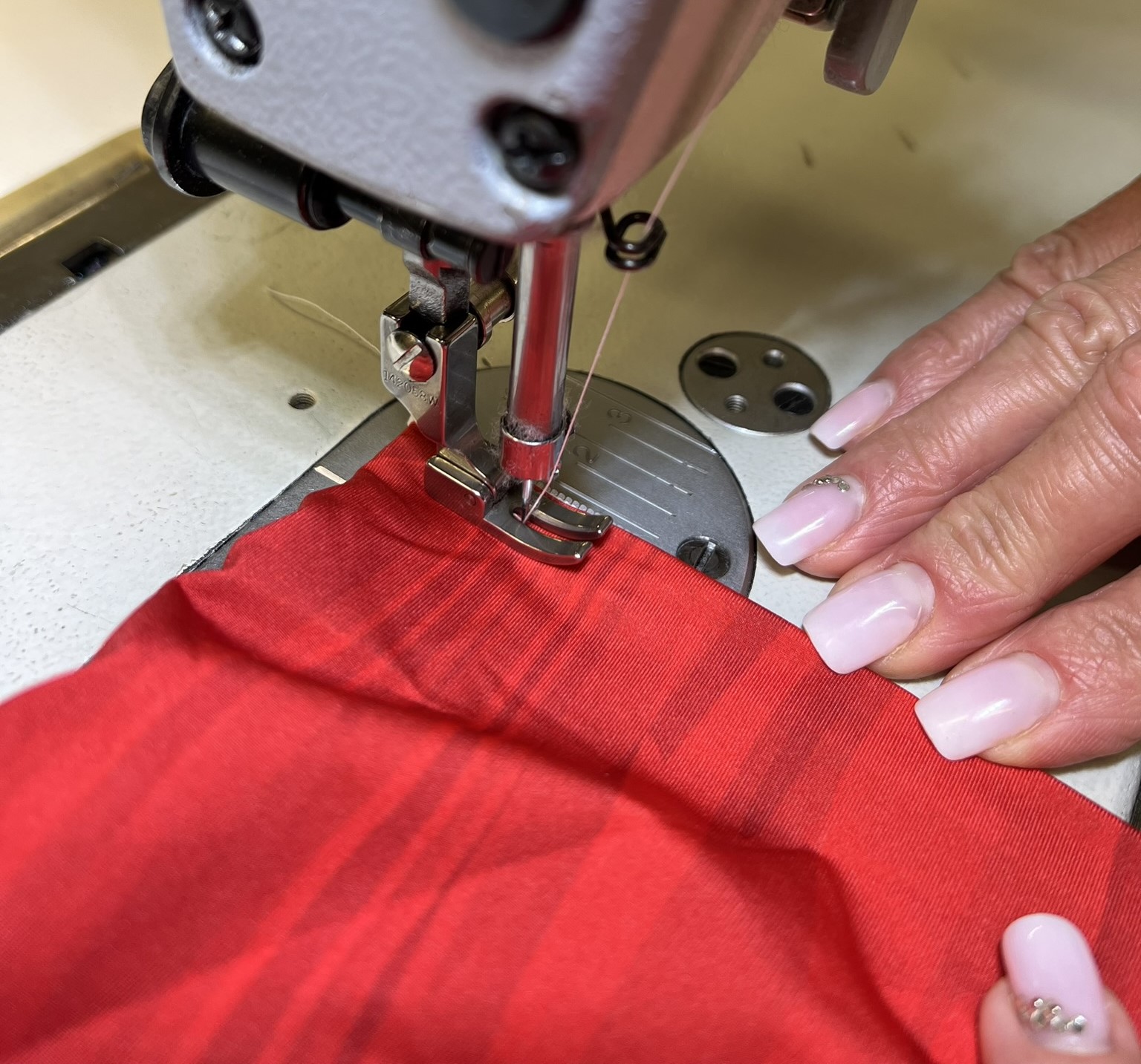Clothing production in Poland vs. production in Asia
At the beginning of 2024, the world was informed that France, as the first country globally, plans to legally restrict the development of so-called "ultra-fast fashion." The French Parliament unanimously signed a bill that outlines various solutions on this issue, including a ban on advertising products, even by influencers on social media, and an ecological fee for producers to offset the impact of "fast fashion" on the environment. "Fast fashion" generates an enormous amount of waste, greenhouse gases, and water pollution (through microplastics and chemicals).
Our company fully supports such actions! As a small, family-run business, we believe that the increasingly noticeable trend of responsible fashion, which involves shifting production to local suppliers who work with particular attention to standards and high-quality products, is commendable. Domestic companies have a modern approach to production while diligently preserving tailoring traditions.
Clothing production in Poland and import from Asia represent two different strategies for delivering clothing to the market.

QUALITY
Poland, being part of the European Union, emphasizes high-quality standards, solid construction, and careful craftsmanship, which directly translates into the comfort of wearing clothing for customers and its durability, aligning perfectly with the "slow fashion" trend. In contrast, in the Asian clothing industry, competitive prices are often associated with lower quality and the use of cheaper materials, which are more prone to wear and tear.
MOQ
Minimum Order Quantity is a concept that marks a significant difference between the Asian and Polish markets. In Asia, to fulfill an order, it must be at least 2,000, sometimes even 5,000 pieces of a given model, which naturally requires greater capital from the start, not to mention that some companies do not need such large quantities. Polish sewing factories handle much smaller orders. At DARTEX, we sew both small orders, sometimes just a few or a dozen pieces, as well as those numbering thousands of pieces. We understand that start-up companies often prefer to begin production with smaller, safer quantities to test the market and see if their product will be accepted. Additionally, our company specializes in sportswear, so we often sew clothes for sports clubs with a specific number of players. These orders are usually personalized, meaning each player in the team has their name or surname on the jersey.
COST
It is obvious that clothing production in Poland often involves higher labor and raw material costs compared to Asian countries. However, as a member of the EU, Poland adheres to standards regarding working conditions, ensuring employees receive appropriate wages, a safe working environment, and labor rights. Dartex has been repeatedly awarded by the National Labor Inspectorate in the "Employers - Safe Work Organizers" competition. In Asian countries, especially those with lower production costs, labor rights violations are common, including excessive working hours, low wages, lack of workplace safety, and even child labor. Therefore, it is important to remember that the ethical aspect of production directly affects the unit price of the product.
ENVIRONMENT
Clothing production in Poland is often subject to stricter environmental protection regulations compared to production in Asian countries. Poland is increasingly focusing on sustainable development, including reducing water and energy consumption, waste segregation, renewable energy sources, and using more environmentally friendly production technologies. In Asia, despite a minimal increase in environmental awareness, most production facilities still do not pay attention to the amount of waste generated and emissions.
TRANSPARENCY
Therefore, in our opinion, the choice between clothing production in Poland and import from Asia is obvious. Dartex operates transparently, clearly presenting the production process, unit price composition, ensuring high-quality products, sustainable development, and the well-being of its employees, which directly supports the local market.
Thank you for your interest in our company, and we invite you to collaborate in supporting responsible and ethical fashion.
